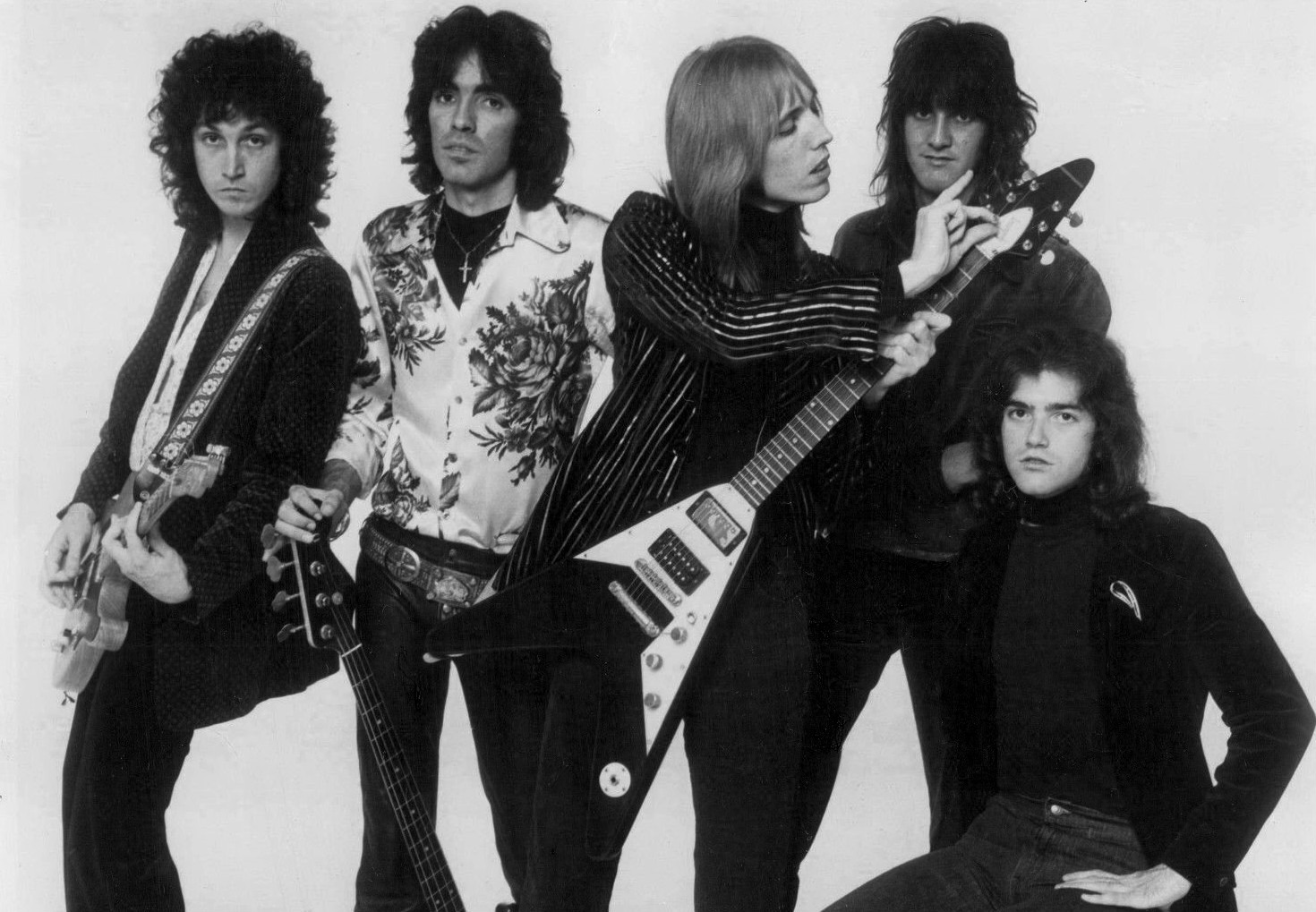The band’s early days
Heartland rock pioneers Tom Petty and the Heartbreakers formed in Gainesville, Florida in the mid-1970s. The founder and primary vocalist/guitarist, is Thomas Earl “Tom” Petty. Other founding members include Mike Campbell (lead guitar), Ron Blair (bass), Stan Lynch (drums), Benmont Tench (keyboards), but in the following years some lineup changes would occur. The band released their first single “Depot Street” in 1975, which failed to chart in the US but was a hit in the UK.
First major hit
In 1976, the Heartbreakers released their first album Tom Petty and the Heartbreakers (on Shelter Records label), which eventually went gold. It featured the single “Breakdown,” which became a Top 40 hit when it was re-released two years later.
Tom Petty and the Heartbreakers’ second album You’re Gonna Get It! was released in 1978. Legal disputes between him and his soon-to-be new label MCA caused Petty to file bankruptcy. This occurred before the release of his group’s third album Damn the Torpedoes (1979) which couldn’t have arrived at a better moment to save Petty from his financial muddle.
Damn the Torpedoes became the Hearbreakers’ first major hit, peaking at #2 on the Billboard 200 and going double platinum. It produced the hit singles “Don’t Do Me Like That” (at #10) and “Refugee” (at #15).
More hits in the 1980s
Into the 1980s, the hits continued for Tom Petty and the Heartbreakers. Their albums Hard Promises (#5 on the Billboard 200, 1981), Long After Dark (#9, 1982), Southern Accents (#7, 1985), and Let Me Up (I’ve Had Enough) (#20, 1987) were all hits.
Tom Petty and the Heartbreakers’ hits in the 1980s include “The Waiting” (#19 pop, #1 rock), “You Got Lucky” (#20 pop, #1 rock), “Change Of Heart” (#21 pop, #10 rock), “Don’t Come Around Here No More” (#13 pop, #2 rock), and “Needles and Pins” (#37 pop, #1 rock).
Tom Petty as member of the Traveling Wilburys, and launching a solo career
In 1988, Petty became member of the super group The Traveling Wilburys, which also included George Harrison, Jeff Lynne, Roy Orbison and Bob Dylan. They recorded two hit albums between the years 1988-1990 (although Orbison died before the recording of their second album).
In 1989, Petty launched his solo career with a debut album Full Moon Fever, which featured his most popular song ever yet, “Free Fallin'” (at #7 on the Hot 100).
The Heartbreakers in their later years; Tom Petty’s death and legacy
Driven by Petty’s solo career success, he and his Heartbreakers aimed to maintain that momentum by releasing their eighth studio album Into the Great Wide Open in 1991. It was also a success, reaching #13 on the Billboard 200 and earning a double platinum certification.
Tom Petty and the Heartbreakers’ Greatest Hits album was issued in 1993, which would later reach “diamond” status (equivalent to ten times platinum and above). The album featured a hit single “Mary Jane’s Last Dance” (#14 pop, #1 rock). It was also to be the band’s last album with MCA.
In 1994, Petty moved to Warner Bros., and released his hit solo album Wildflowers. The Heartbreakers released their first album on the same label, Songs and Musicfrom “She’s The One” which hit #15 on the Billboard 200. Echo was released three years later, and it peaked at #10. Another album on Warner label, The Last DJ was released in 2002; there, Petty took a swipe at the present state of the music industry.
It was followed by Petty’s solo album Highway Companion in 2006 and another Heartbreaker album Mojo in 2010.
On October 2, 2017, Tom Petty died of a heart attack in Santa Monica, California. He was 66 years old. Throughout his career, Petty had sold over 80 million records as a member of the Heartbreakers and as a solo artist.
As a token of his legendary fame and his unique contribution to the music industry, he and the Heartbreakers received a star on the Hollywood Walk of Fame. They were also inducted to the Rock and Roll Hall of Fame in 2002.
Petty will also be remembered as an artist who fought artistic control and artistic freedom; someone who stuck true to his musical and artistic roots which his generations of fans have found truly inspiring.

